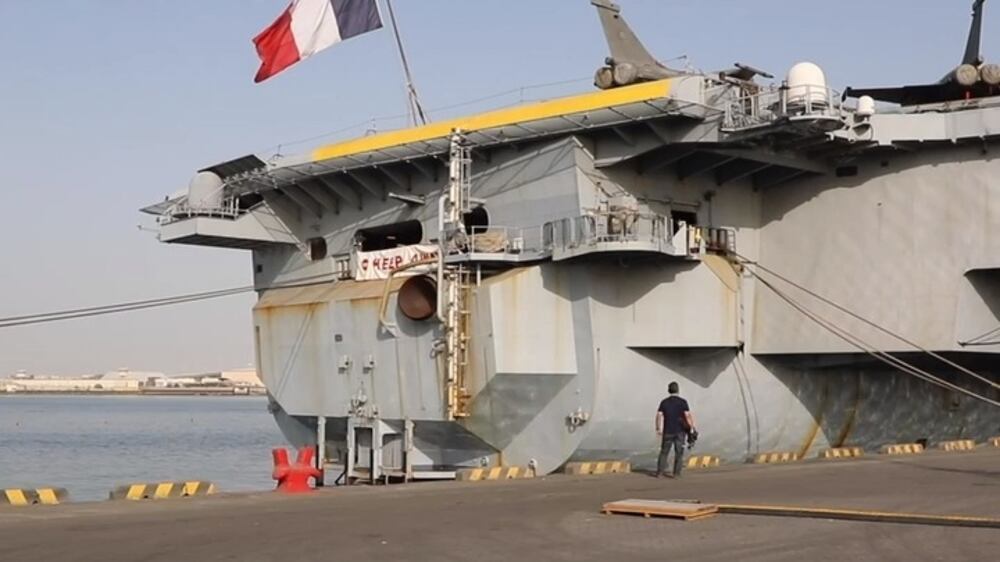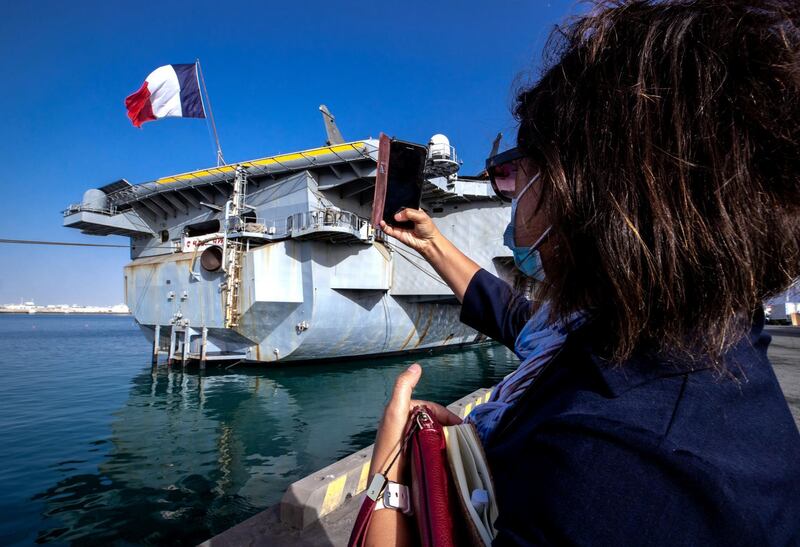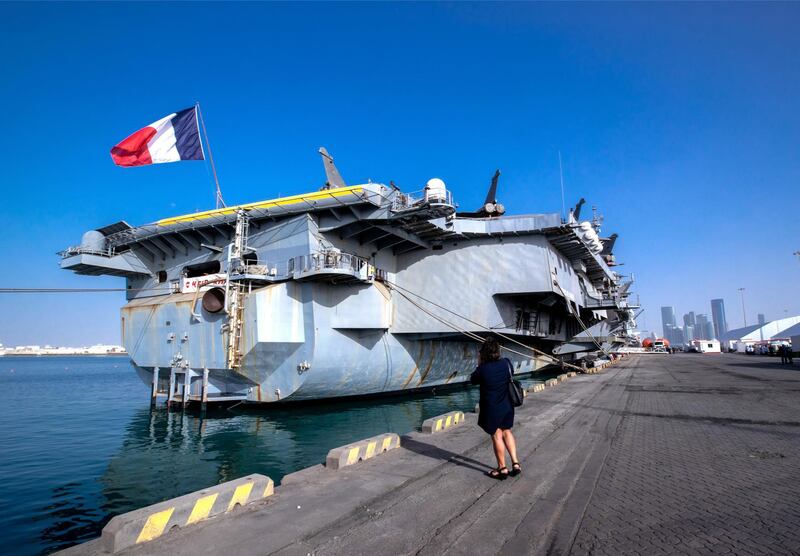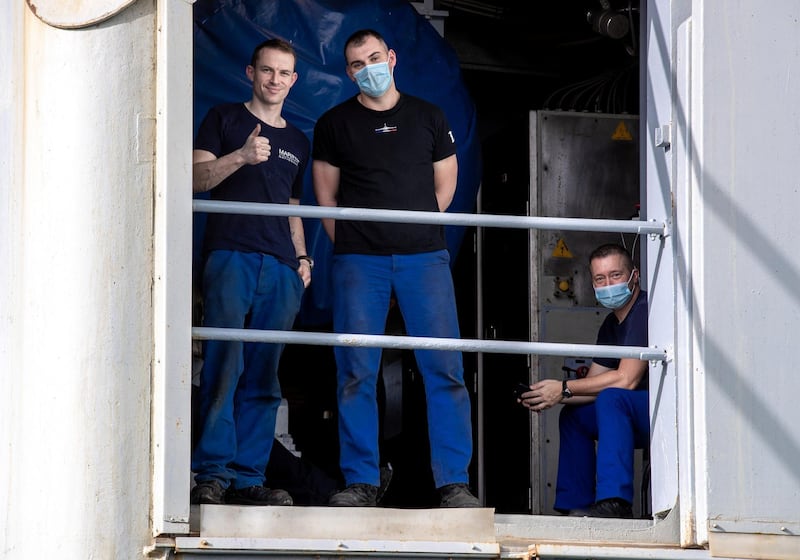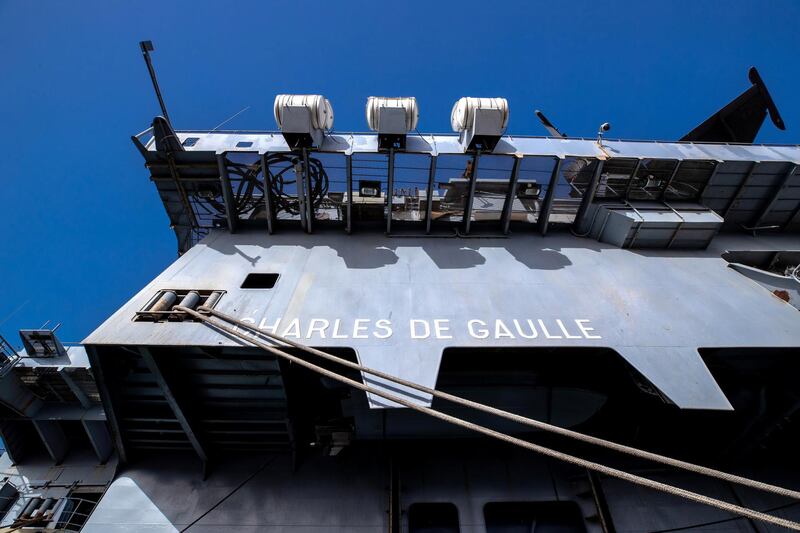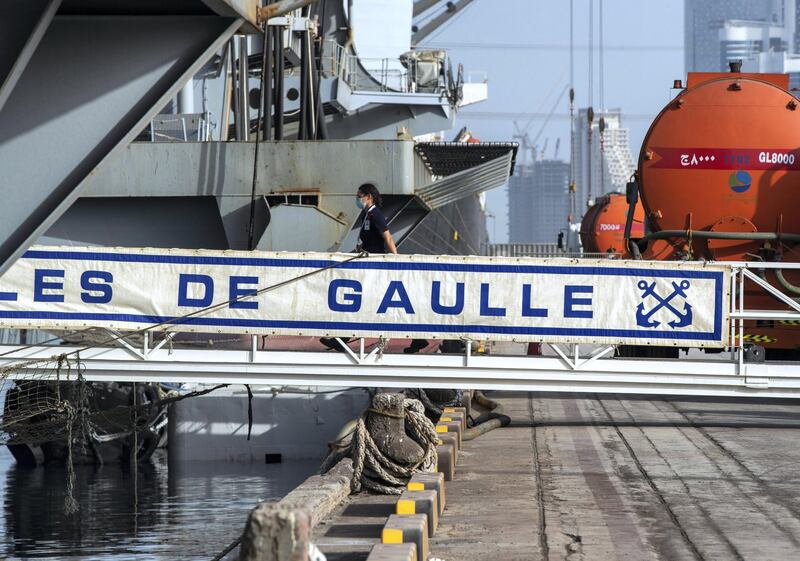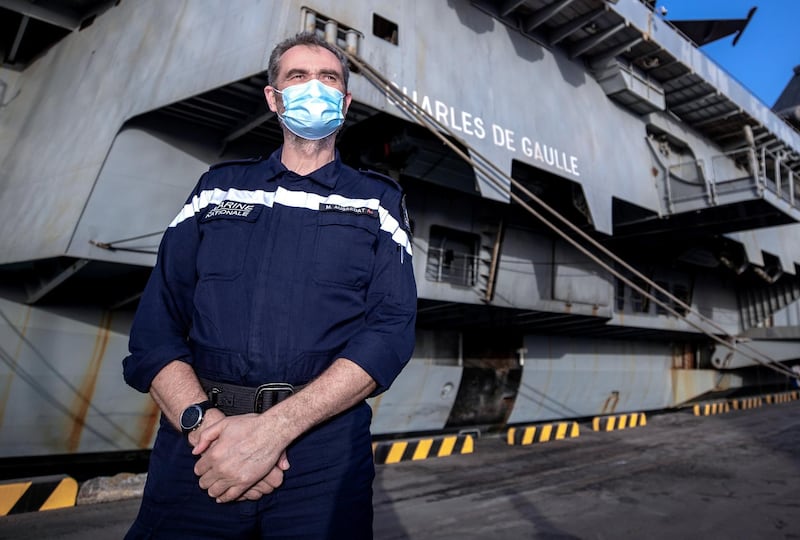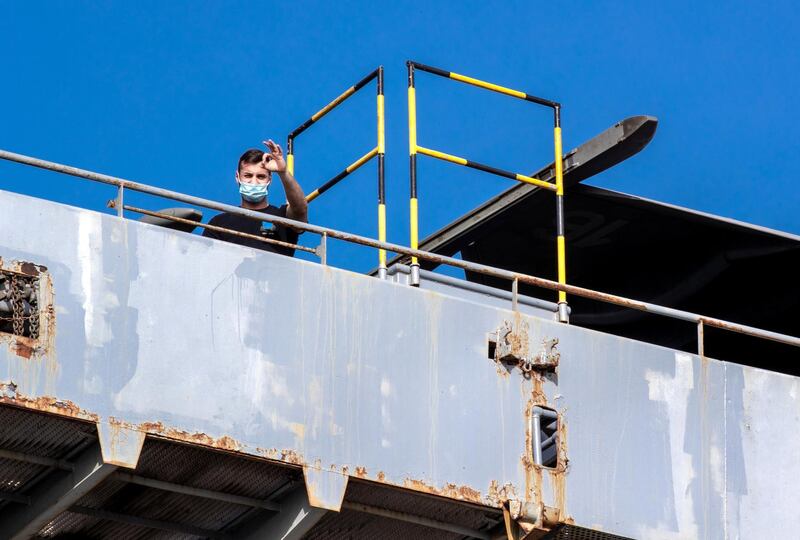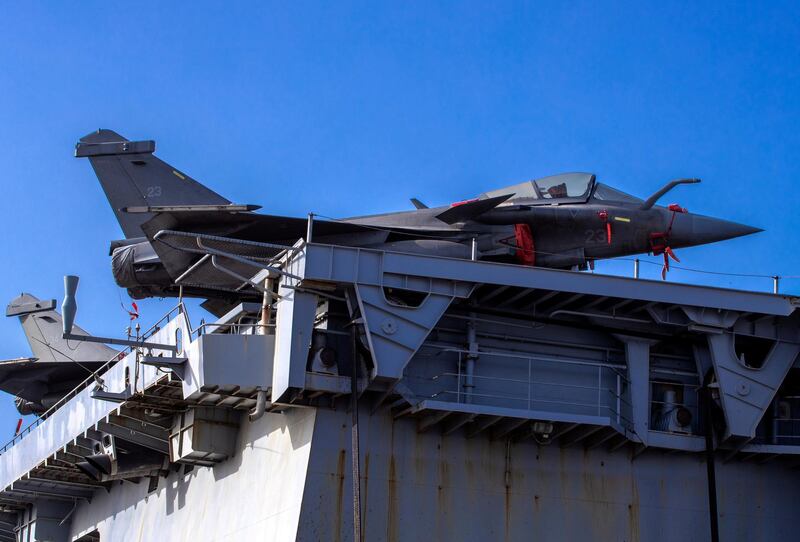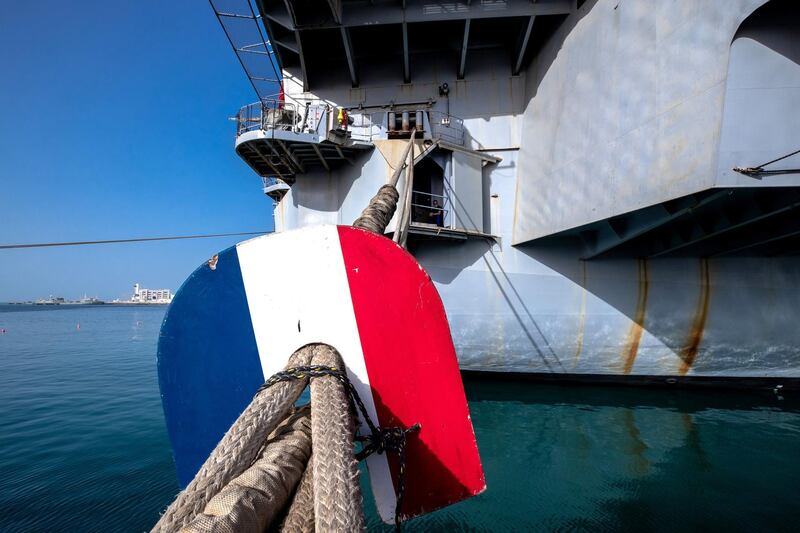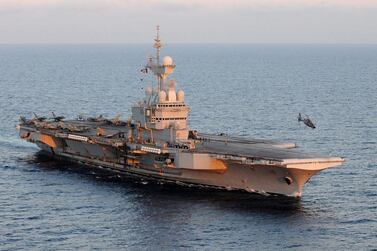After 38 days at sea, the Charles De Gaulle is in the Middle East again. But the aircraft carrier, a symbol of France's military, is not exempt from quarantine after its voyage from Toulon to Abu Dhabi.
"I wish I could say, 'Welcome aboard' but we can't due to Covid restrictions. We are meeting under the mighty shadow of Charles de Gaulle," said Capt de Vaisseau Pinget, the ship's commanding officer.
The Charles De Gaulle learnt a tough lesson during the pandemic when a third of the sailors – 668 out of about 2,000 – were infected with coronavirus last year.
For the ship's latest journey, vaccines were provided to all personnel on board.
At least four Rafale warplanes were visible from the pavement of Zayed Port. Some of the sailors breathed a sigh of relief on disembarking after so long at sea.
"We are not allowed to leave the perimeters of the carrier, though – the life of a navy sailor," a smiling crew member told The National.
Masks were mandatory and visitors were allowed in only after testing negative for coronavirus.
The Rafales are being prepared for a mission, code-named Clemenceau 21, to continue the US-led fight against remnants of ISIS in Syria and Libya, and respond to "regional security issues" from the Gulf to the Indian Ocean.
The mission is named after a former prime minister from the First World War era, while the carrier bears the name of one of France’s towering figures, the founder of the Fifth Republic.
The nuclear-powered carrier is able to transport fighters, bombers and reconnaissance aircraft, and is equipped with sophisticated radar and sensors to deter submarines launching anti-ship missiles from far afield.
As regional tensions with Iran still simmers, it seems the French want to be a key part of the conversation, even though the navy’s most senior officers are not authorised to talk about politics.
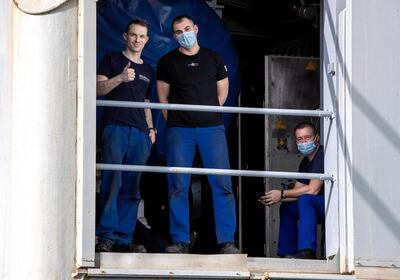
"I am in no position to answer your question. I won't talk about the geopolitics," said Adm Marc Aussedat, commander of First Task Force 473, when asked by The National whether France would play a role in deterring any potential Iranian threat in the region, as it has done before.
“We represent strength and stabilisation. We are not here to send threatening messages or point fingers at anyone.”
There have been periodic confrontations in the Gulf in recent years between Iran's Revolutionary Guard Corps and the US military, which accused the Iranian Navy of sending fast-attack boats to harass US warships as they pass the strategic Strait of Hormuz.
There are calls in the region for US President Joe Biden to address Iran's ballistic missile programme and include regional heavyweights in the negotiations over Tehran's nuclear programme.
France has a presence in the region, militarily and diplomatically.
President Emmanuel Macron embarked on shuttle diplomacy in Baghdad to co-ordinate with Iraq authorities to face potential threats from ISIS to Beirut after the port explosion in August last year.
The Charles De Gaulle also played a role in the region's conflicts. The craft was crucial in toppling Libyan dictator Muammar Qaddafi in 2011. Today, France has vast interests in maintaining stability in oil and gas-rich Libya, which has become a transit point for illegal immigrants and refugees heading to southern Europe.
In 2015, the carrier was sent to the region to mount air strikes against ISIS militants in Syria. It was also sent several times to join the fight against extremist groups in Libya and counter-piracy operations in Africa.
As Turkey was starting to redraw its role in the region, France was quick in siding with Cyprus against Ankara's gas explorations in the Mediterranean and sent two Rafales and a naval frigate to the Eastern Mediterranean when tensions between Greece and Turkey increased.
